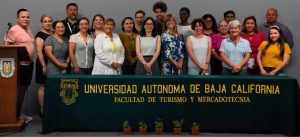
The UK-Mexico Leisure and Tourism Academic Writing Workshop at UABC, Tijuana
After two years of postponing the British Academy-funded ‘UK-Mexico Leisure and Tourism Academic Writing Workshop: Supporting Mexican ECRs in writing for publication’ due to the COVID-19 pandemic, the organisers Dr Paola Vizcaino (Bournemouth University, Department of Sport and Event Management) and Dr Isis Arlene Díaz- Carrión (Universidad Autónoma de Baja California, Facultad de Turismo y Mercadotecnia), were able to deliver a successful face-to-face workshop at the UABC campus in Tijuana this summer.
The event took place from 8-12 August 2022 with the aim to support the career development of up to 20 PhD students and early career researchers (ECRs) from Universidad Autónoma de Baja California (UABC) and seven other Mexican universities (Universidad de Guanajuato, Universidad Autónoma del Estado de México, Universidad Anáhuac, Universidad Autónoma Metropolitana, Universidad Autónoma de Querétaro, Colegio de Postgraduados and Universidad Veracruzana).
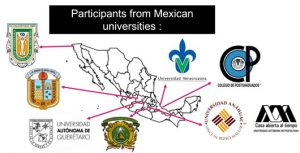
The workshop was designed to provide participants access to the academic requirements of high-ranking leisure and tourism journals in English, and to equip them with the necessary knowledge and skills to publish in these journals.
The brilliant speakers included:
Nancy Gard McGehee, PhD, Professor at Virginia Tech, USA and Co-editor of the Journal of Travel Research, the 2021 top-ranked impact factor journal in the area of tourism;
Donna Chambers, PhD, Professor of Tourism at the University Sunderland, UK and Managing Editor of Leisure Studies and Resource Editor of Annals of Tourism Research;
Jayne Caudwell, PhD, Associate Professor in Social Sciences, Gender and Sexualities at Bournemouth University, UK and former Managing Editor of Leisure Studies;
Xavier Font, PhD, Professor in Sustainable Marketing at the University of Surrey, UK and Co-editor of the Journal of Sustainable Tourism;
Philipp Wassler, PhD, Assistant Professor at the University of Bergamo, Italy and reviewer for a number of high-ranking tourism journals.
The workshop offered networking sessions to allow participants to discuss their research interests and start conversations about potential research collaborations, as well as personalised mentoring with journal editors and established academics in the fields of leisure and tourism management.
Finally, participants also learned about the British Academy’s international funding schemes and were particularly interested in the Newton International Fellowships and Visiting Fellowships, which can facilitate collaborative research projects between academics based overseas (i.e. Mexico) and UK higher education institutions.
Please find below some of the workshop highlights.
Welcome
Dr Marisa Reyes-Orta, Research and Postgraduate Coordinator at the Facultad de Turismo y Mercadotecnia, welcomed speakers and participants to the UABC, Tijuana on behalf of the faculty’s Director, Dr Martha Ofelia Lobo Rodríguez.
Dr Reyes-Orta highlighted the importance of the British Academy-funded workshop to build collaboration networks between Mexico and the United Kingdom, to develop the competitiveness of the academic outputs written by Mexican PhD students and ECRs and to contribute to the internationalisation of the UABC’s postgraduate programmes, particularly the recently validated PhD in Tourism.

Welcome to the workshop. Left to right: MC, Jesús Amparo López Vizcarra (UABC), Dr Paola Vizcaino (BU), Dr Isis Díaz-Carrión (UABC) and Dr Marisa Reyes-Orta (Research and Postgraduate Coordinator at UABC, Tijuana)
Academic Writing Tips from Journal Editors
After a brief introduction to the workshop and an ice-breaker activity led by Dr Paola Vizcaino (BU) and Dr Isis Arlene Díaz-Carrión (UABC, Tijuana), the journal editors presented the publication requirements of top-ranking leisure and tourism journals and shared insightful writing tips with participants.
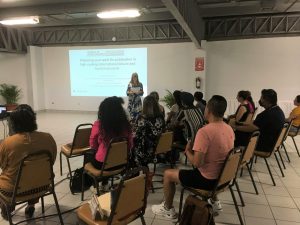
Key note by Prof Nancy McGehee
Professor Nancy Gard McGehee (Virginia Tech, USA, Co-editor of the Journal of Travel Research, JTR) highlighted the need for PhD students and ECRs to develop a solid research plan by: a) studying the literature to look for gaps, b) examining the tourism industry and current environment to look for problems that need solutions, c) finding the best theory (or theories) to solve the problem, and d) letting the problem direct the method.
She also recommended assessing tourism journals to find the right match for participants’ research and the importance of translating local research to a global audience in the case of international journals. Furthermore, she emphasised how top-ranked impact factor journals only consider manuscripts for publication when they demonstrate substantive and leading edge research, a sound methodology and a strong theoretical foundation / contribution.
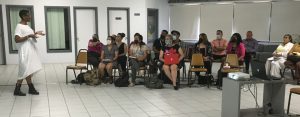
Presentation by Prof Donna Chambers
Professor Donna Chambers (University of Sunderland, UK, Managing Editor of Leisure Studies) explained the type of papers that are welcome by Leisure Studies, including papers that examine the inter-relationships between leisure and work, civic engagement, health and wellbeing, major
resources of social inequality and forms of social (in)justice.
As Prof Chambers was aware that most of the workshop participants had a focus on tourism management and some are developing projects on natural and cultural heritage, she mentioned that research that addresses tourism as a leisure activity or examines the leisure aspects of events and festivals are also a good fit for the journal. Finally, she expressed that Leisure Studies seeks to develop culturally diverse and nuanced understandings of leisure and that research which examines leisure in the Global South is welcomed alongside studies of leisure in the Global North.
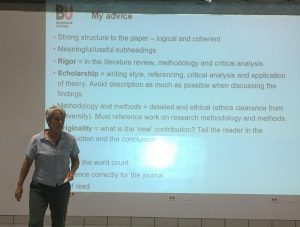
Presentation by Associate Prof Jayne Caudwell
Associate Professor Jayne Caudwell (BU) shared some practical tips for PhD students and ECRs to enhance their research and written outputs. She highlighted the need for strong theoretical underpinning, sound methodology and critical analysis of findings (demonstrating rigor in every section), a clear structure to the paper, logical and coherent (to meet scholarship requirements), and to explain the original aspects of the research or demonstrate an original contribution to the body of knowledge (originality).

Professor Xavier Font
Professor Xavier Font (University of Surrey, UK, Co-editor of the Journal of Sustainable Tourism), joined remotely from the UK to deliver an online presentation in Spanish to ensure maximum rapport with participants. He recognised that less than 1% of the submissions to the Journal of Sustainable Tourism come from academics ascribed to Latin American universities or research centres and offered sound advice on how to overcome the language barriers to publish in English-speaking journals, as well as to develop a work plan to publish in top-ranked impact factor journals.
He also emphasised the need for ECRs to specialise in an area of leisure or tourism research, whilst building collaborative networks to gain access to the theoretical and methodological expertise of more senior colleagues to develop stronger research proposals and outputs.
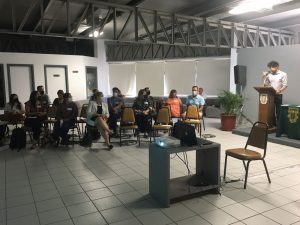
Presentation by Dr Philipp Wassler
To close the first two days of guest speaker presentations, Dr Philipp Wassler (University of Bergamo, Italy) shared his perspective as a journal reviewer, and provided practical examples on how to structure a strong research article before submitting to a top-ranked impact factor journal. He highlighted the need to write a sharp abstract and introduction section to capture the readers’ interest; a strong literature review that demonstrates a thorough understanding of the theories that have been employed to examine the problem; a detailed methodology section with clear justification of choices; and a findings / discussion section that tackle the research questions / objectives.
The second part of the report will follow suit on a separate blog post to summarise the creation of the UK-Mexico Leisure and Tourism Academic Network and the initial collaborations that are stemming from the workshop.
 We are delighted to welcome Korean composer and sound artist Suk-Jun Kim. His music is published by ICMC, IMEB, SEAMUS, M&R, and Vox Regis, and has received a number of international awards, including Métamorphoses in 2000 and 2008, Concurso International de Música Electroacústica Såo Paulo in 2007, and Bourges International Competition in 2001.
We are delighted to welcome Korean composer and sound artist Suk-Jun Kim. His music is published by ICMC, IMEB, SEAMUS, M&R, and Vox Regis, and has received a number of international awards, including Métamorphoses in 2000 and 2008, Concurso International de Música Electroacústica Såo Paulo in 2007, and Bourges International Competition in 2001.
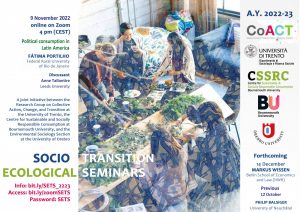









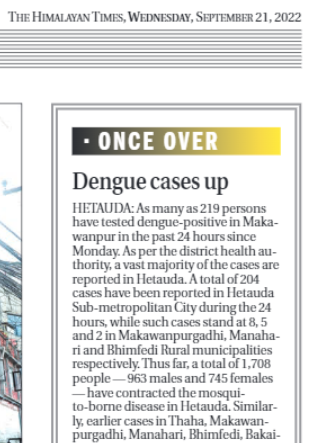
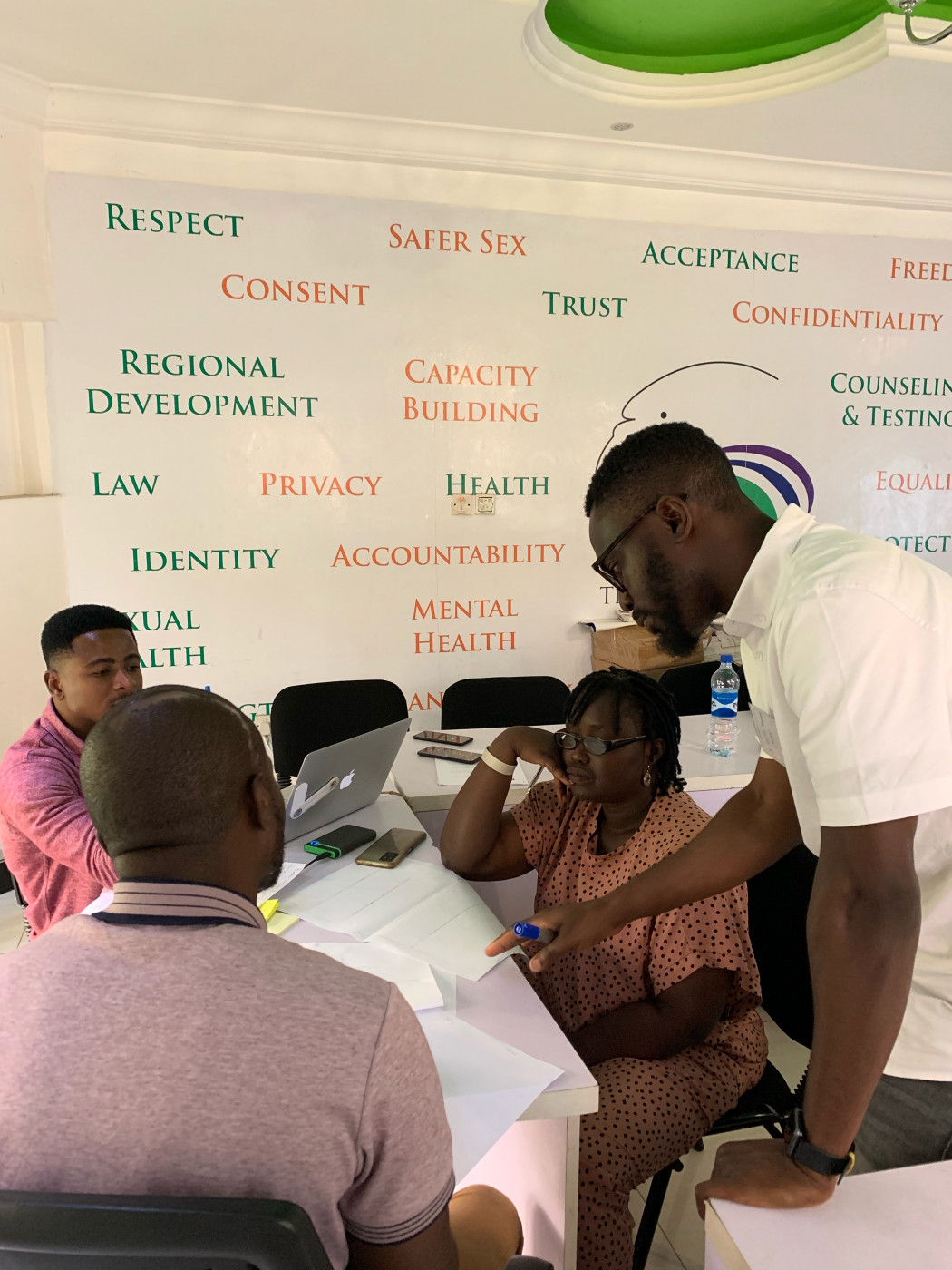
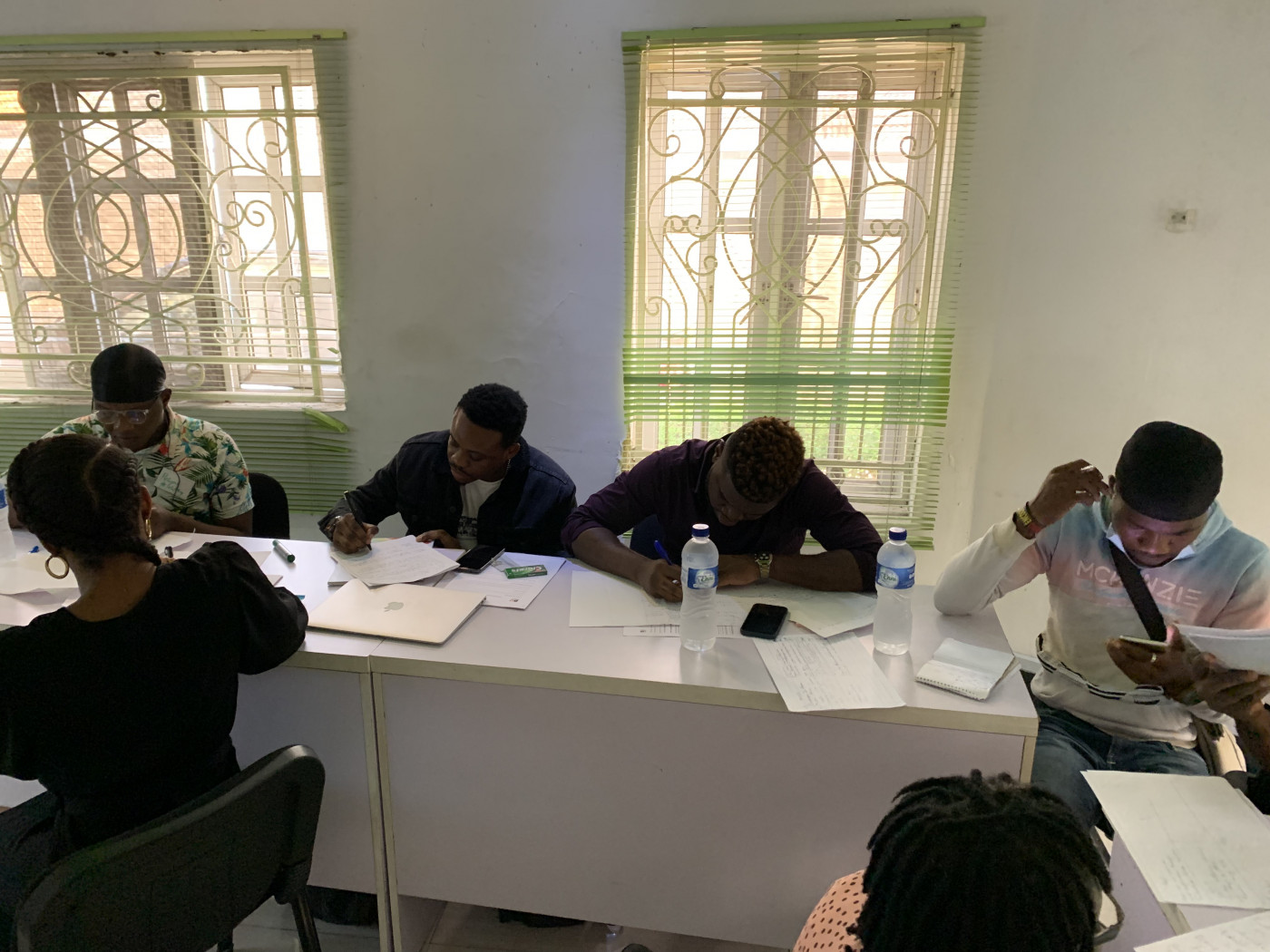








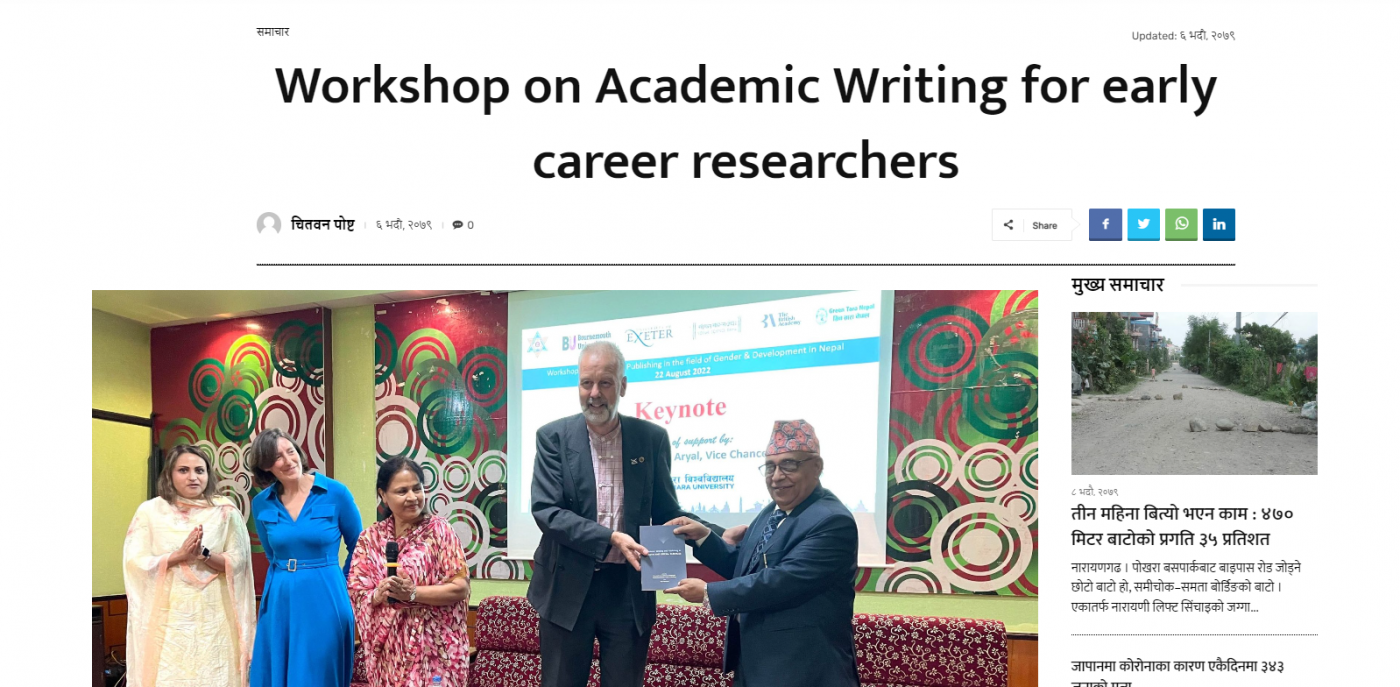
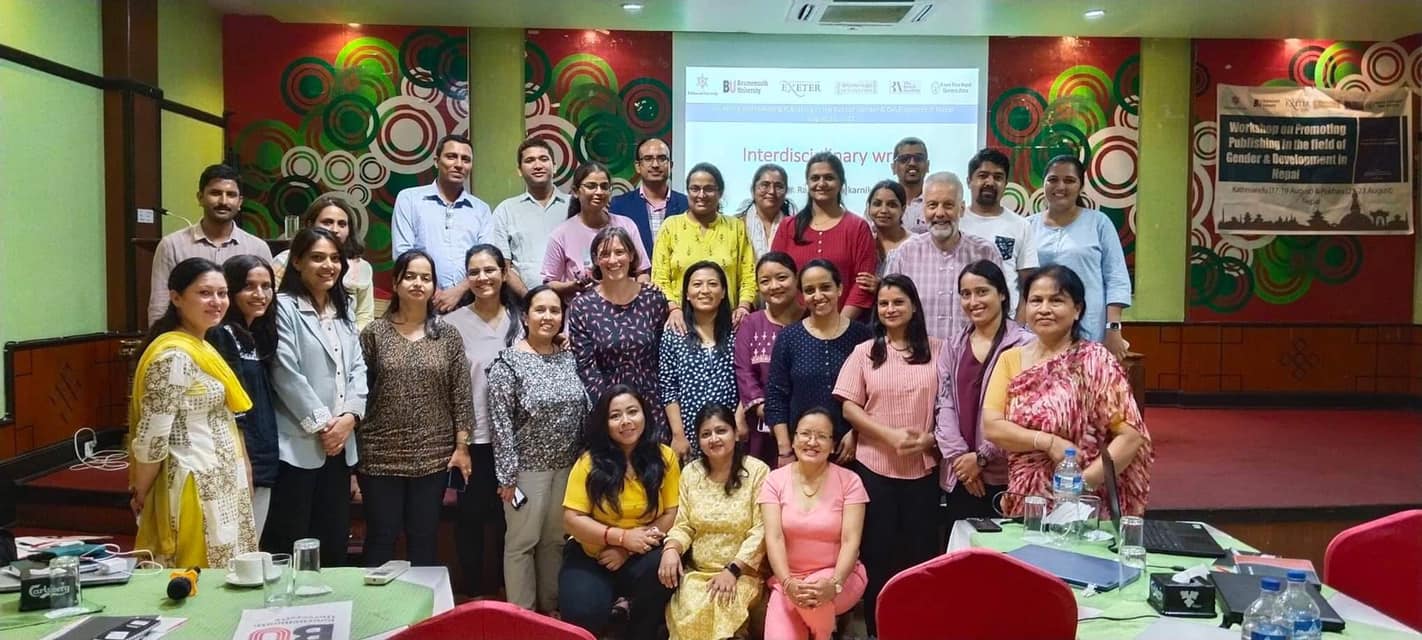
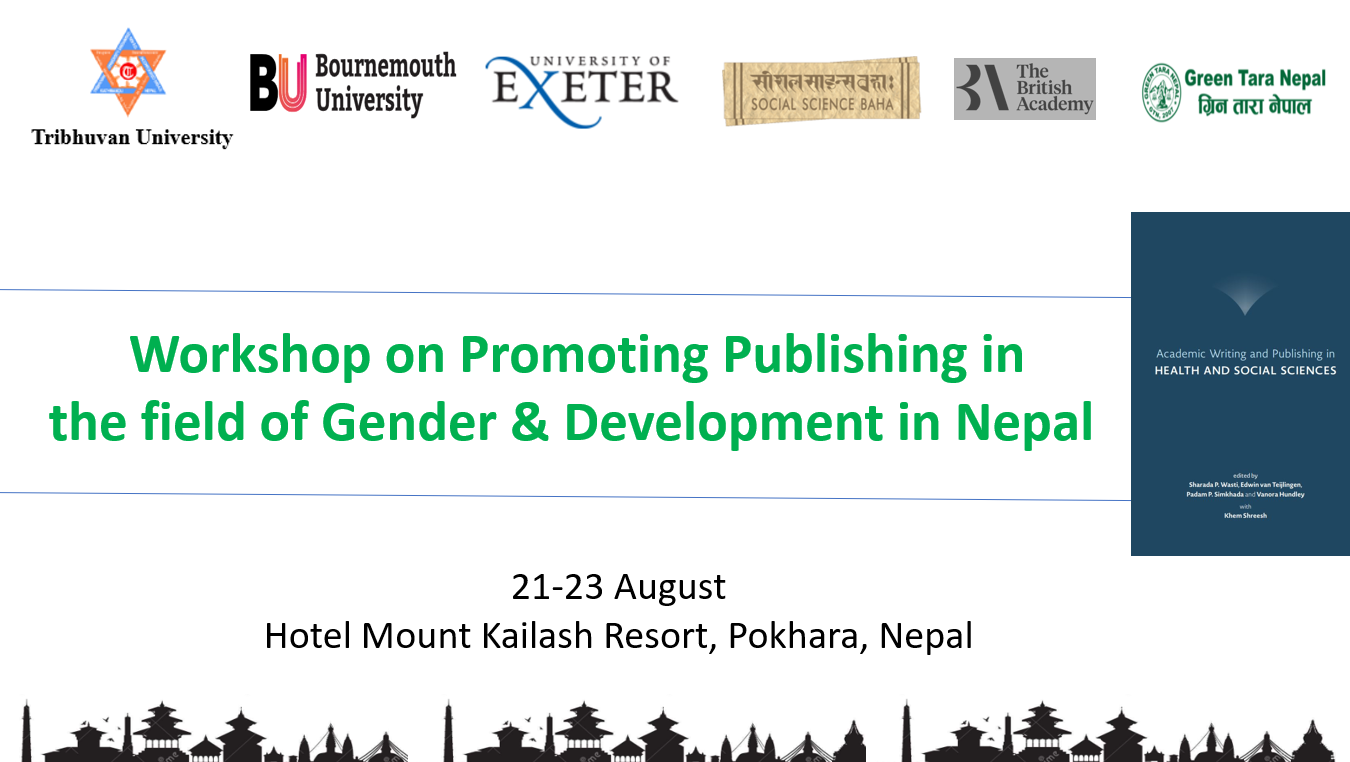


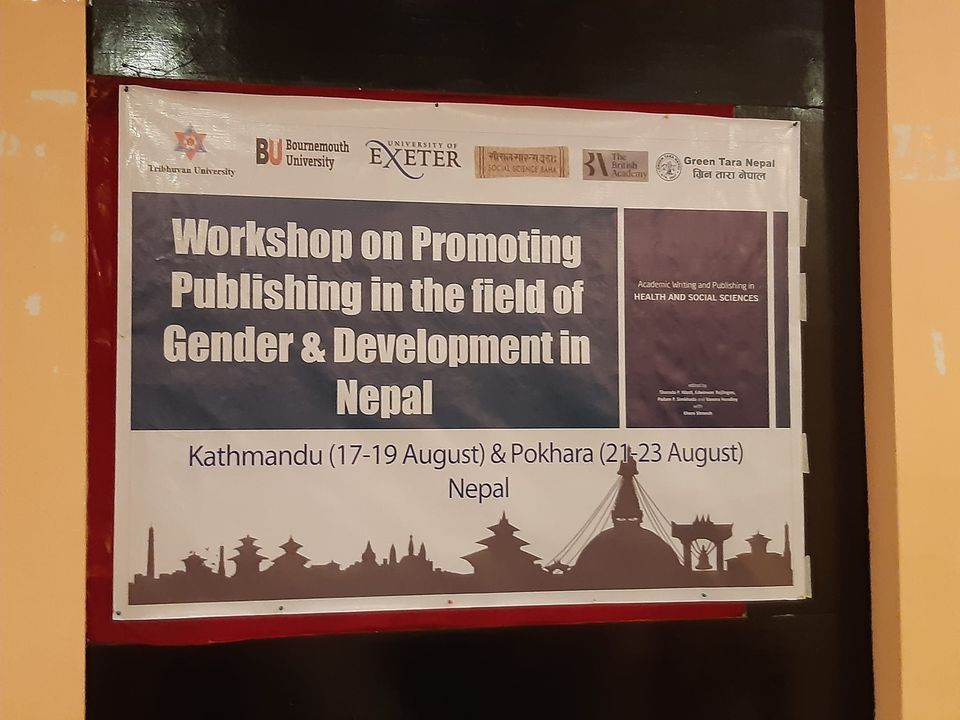
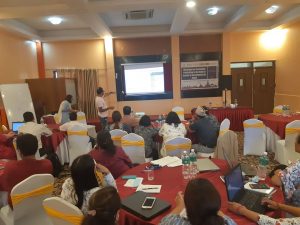

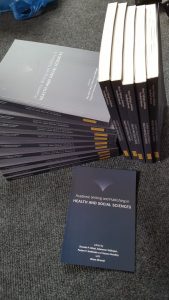
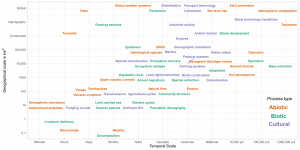











 REF Code of Practice consultation is open!
REF Code of Practice consultation is open! BU Leads AI-Driven Work Package in EU Horizon SUSHEAS Project
BU Leads AI-Driven Work Package in EU Horizon SUSHEAS Project Evidence Synthesis Centre open at Kathmandu University
Evidence Synthesis Centre open at Kathmandu University Expand Your Impact: Collaboration and Networking Workshops for Researchers
Expand Your Impact: Collaboration and Networking Workshops for Researchers ECR Funding Open Call: Research Culture & Community Grant – Apply now
ECR Funding Open Call: Research Culture & Community Grant – Apply now ECR Funding Open Call: Research Culture & Community Grant – Application Deadline Friday 12 December
ECR Funding Open Call: Research Culture & Community Grant – Application Deadline Friday 12 December MSCA Postdoctoral Fellowships 2025 Call
MSCA Postdoctoral Fellowships 2025 Call ERC Advanced Grant 2025 Webinar
ERC Advanced Grant 2025 Webinar Update on UKRO services
Update on UKRO services European research project exploring use of ‘virtual twins’ to better manage metabolic associated fatty liver disease
European research project exploring use of ‘virtual twins’ to better manage metabolic associated fatty liver disease